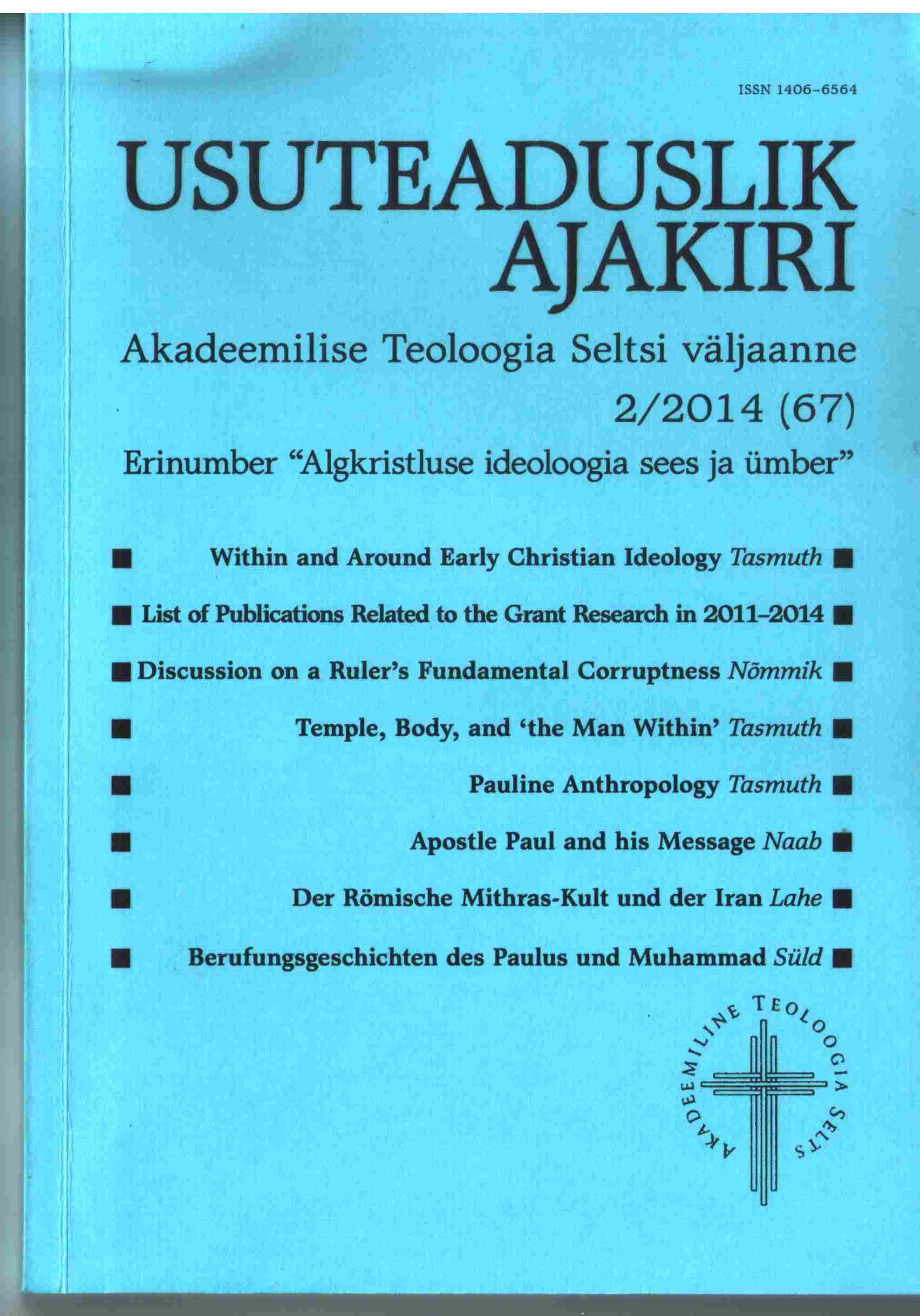Discussion on a Ruler’s Fundamental Corruptness in the Wisdom Literature, Using Job 29–31 as an Example
Discussion on a Ruler’s Fundamental Corruptness in the Wisdom Literature, Using Job 29–31 as an Example
Author(s): Urmas NõmmikSubject(s): Theology and Religion, Biblical studies
Published by: Akadeemiline Teoloogia Selts
Keywords: Biblical Studies;Old Testament;
Summary/Abstract: Job’s final complaint and avowal of innocence in chapters 29–31 in the book of Job has been identified as the culmination of Old Testament ethics. Its significant role within the structural framework of the book has been recognized forevermore. On the one hand, the paper considers the social background of the authors of the book of Job (and chapters 29–31) and underlines their focus on the upper class social situation. On the other hand, based on many Old Testament polemic texts against ruler’s fundamental corruptness, similar tendency is also observed in particular texts in the book of Job. The more religiously, nationally, and even fundamentally minded members of society have often clearly challenged the elite’s worldview. This contradiction is, hence, regarded in the light of redaction critical thesis that Job’s final speech is a secondary addition. There are listed many reasons to claim the secondary nature of the speech. This paper comes to the conclusion that Job’s final complaint and avowal is a polemical addition which can be seen as a reaction, especially of people who do not belong to the extremist groups, to the tendency of challenging elite’s worldview.
Journal: Usuteaduslik Ajakiri
- Issue Year: 2014
- Issue No: 2 (67)
- Page Range: 11-23
- Page Count: 13
- Language: English

